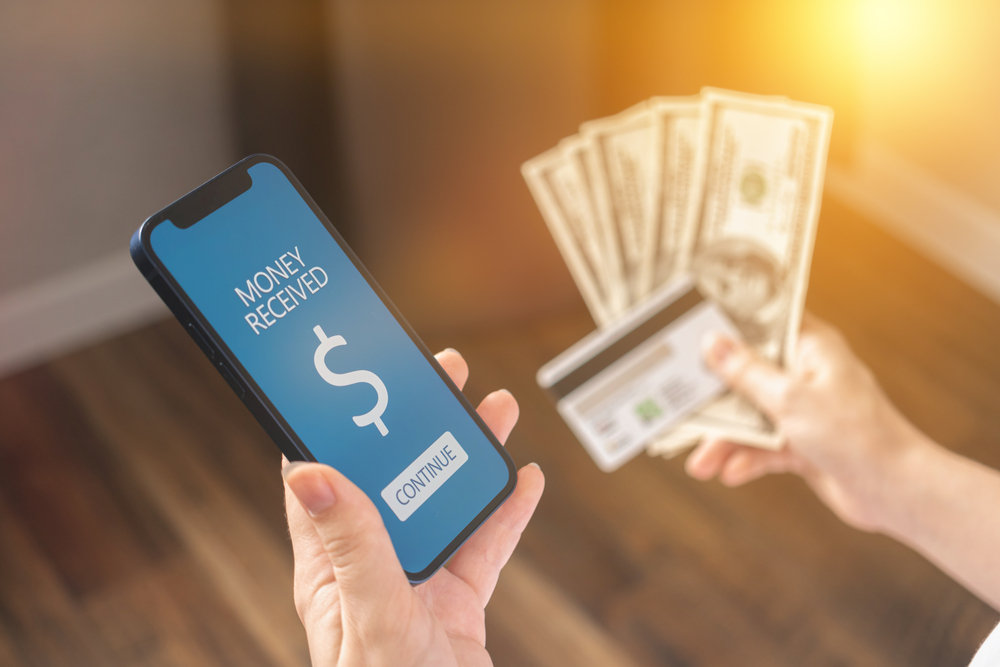How Changes to Digital Payments May Impact Your Taxes This Year
Peacock & French CPAs
Jun 01, 2022

 In January, a new tax law went into effect for digital payment platforms like PayPal, Venmo, and Zelle. Why should this matter to you? If you’re a small business owner who accepts payments via these platforms, your transactions are much more likely to be reported to the IRS than they were previously. It’s important to be aware of these changes to ensure that you’re using proper accounting methods and reporting these sources of income correctly to avoid complications on this year’s tax return. Here’s what you need to know.
In January, a new tax law went into effect for digital payment platforms like PayPal, Venmo, and Zelle. Why should this matter to you? If you’re a small business owner who accepts payments via these platforms, your transactions are much more likely to be reported to the IRS than they were previously. It’s important to be aware of these changes to ensure that you’re using proper accounting methods and reporting these sources of income correctly to avoid complications on this year’s tax return. Here’s what you need to know.
What’s Changing?
First, let’s address what, exactly, is changing in regards to these payment platforms. Previously, PayPal, Venmo, Zelle, Cash App, and other such apps were only required to report users with an annual income exceeding $20,000 in transactions. Now, that threshold is being drastically lowered; these platforms much now report all accounts with over $600 in income to the IRS. This will put the transactions and income of significantly more users in front of the IRS to ensure that taxes are being applied properly to all income sources.
But in truth, nothing is actually changing for the users themselves. These sources of income have always been taxable. No new taxes are being applied to your income. The IRS is simply asking the payment platforms themselves to report your income (if over $600) instead of relying on taxpayers to report it appropriately.
How It Could Impact Your Accounts
While nothing is truly changing for your income taxes, this change to reporting requirements can impact how you manage your digital payment accounts. If you receive a significant amount of personal payments in the same account you use for business transactions, ensuring accurate reporting to the IRS is bound to get a bit messy.
For example, let’s say that you receive payments from your Etsy shop to your PayPal account, with an average monthly income of $500. But you also use that same account to receive payments from friends for shared rent, groceries, dining out together, etc. The mingling of these transactions in the same account may cause some issues in ensuring that your business income is accurately reported to the IRS.
We strongly recommend that you establish separate digital payment accounts for business and personal purposes. Even though the year is halfway over now, making this change right away can ensure that your transactions are appropriately separated moving forward, and reduce the size of the mess you have to clean up come tax time.
Are Personal Payments Taxed?
The reason having these mixed transactions in your account is so problematic is that personal payments are not considered to be taxable income. If your personal and business transaction were to be taxed at the same rate, mixing these transactions in one payment account wouldn’t matter. But because of the different taxability statuses on these different payments, mixing them inappropriately could lead to incorrectly reported income and, therefore, incorrect tax calculations.
Many people are concerned about personal payments being reported as taxable income, but so long as you are clearly separating these types of payments, this is not something that you should have to worry about. PayPal and similar platforms make a concerted effort to differentiate between business and personal payments. As stated on the PayPal website, “PayPal monitors accounts to ensure that personal payments are not being used for sales of goods and services.” This is not only for proper taxation purposes, but to benefit the payment platform as well; PayPal charges a fee for business transactions, but not for personal ones, so it’s within their interests to ensure that your business transactions are properly accounted for.
How We Can Help
If you receive digital payments via Venmo, Zelle, PayPal, Cash App, or other platforms, Peacock & French CPAs can help you to better understand how to effectively manage your payments to ensure proper reporting to the IRS. We’ll put to rest any concerns you may have about your personal payments being taxed and can help you sort through the mixed business and personal transactions from the first half of this year. Contact us today for professional support in managing your small business taxes as well as personal tax preparation needs.